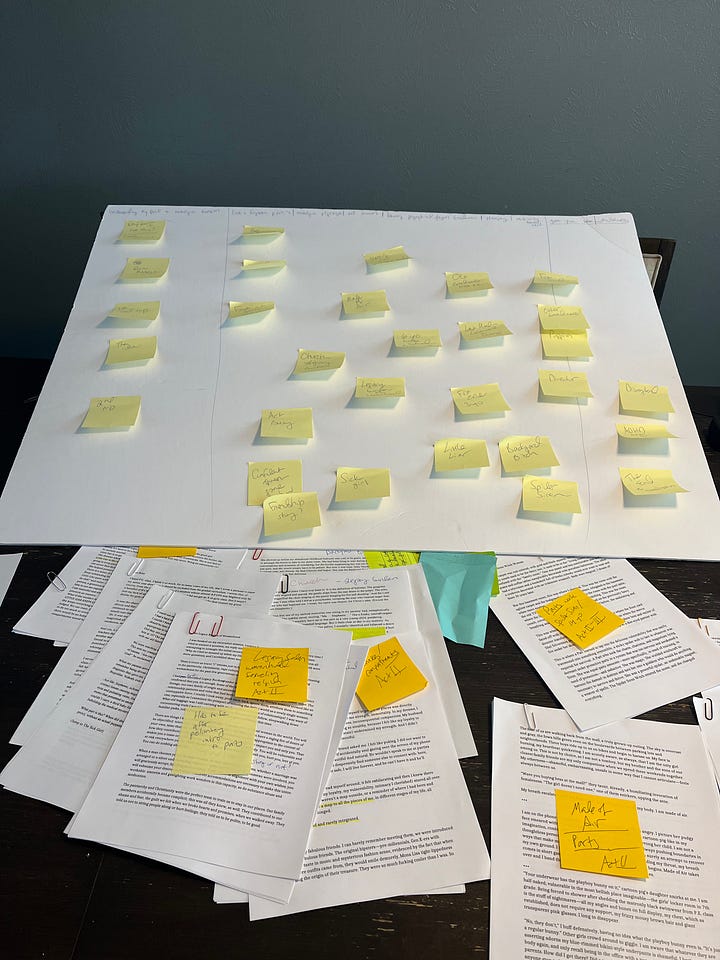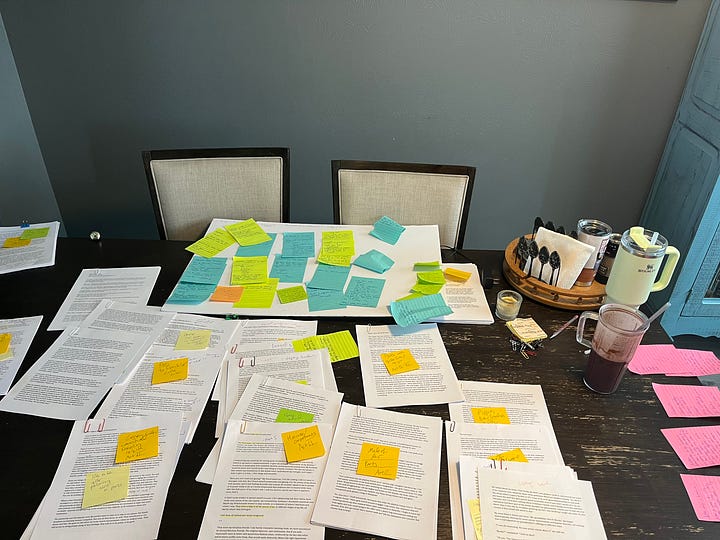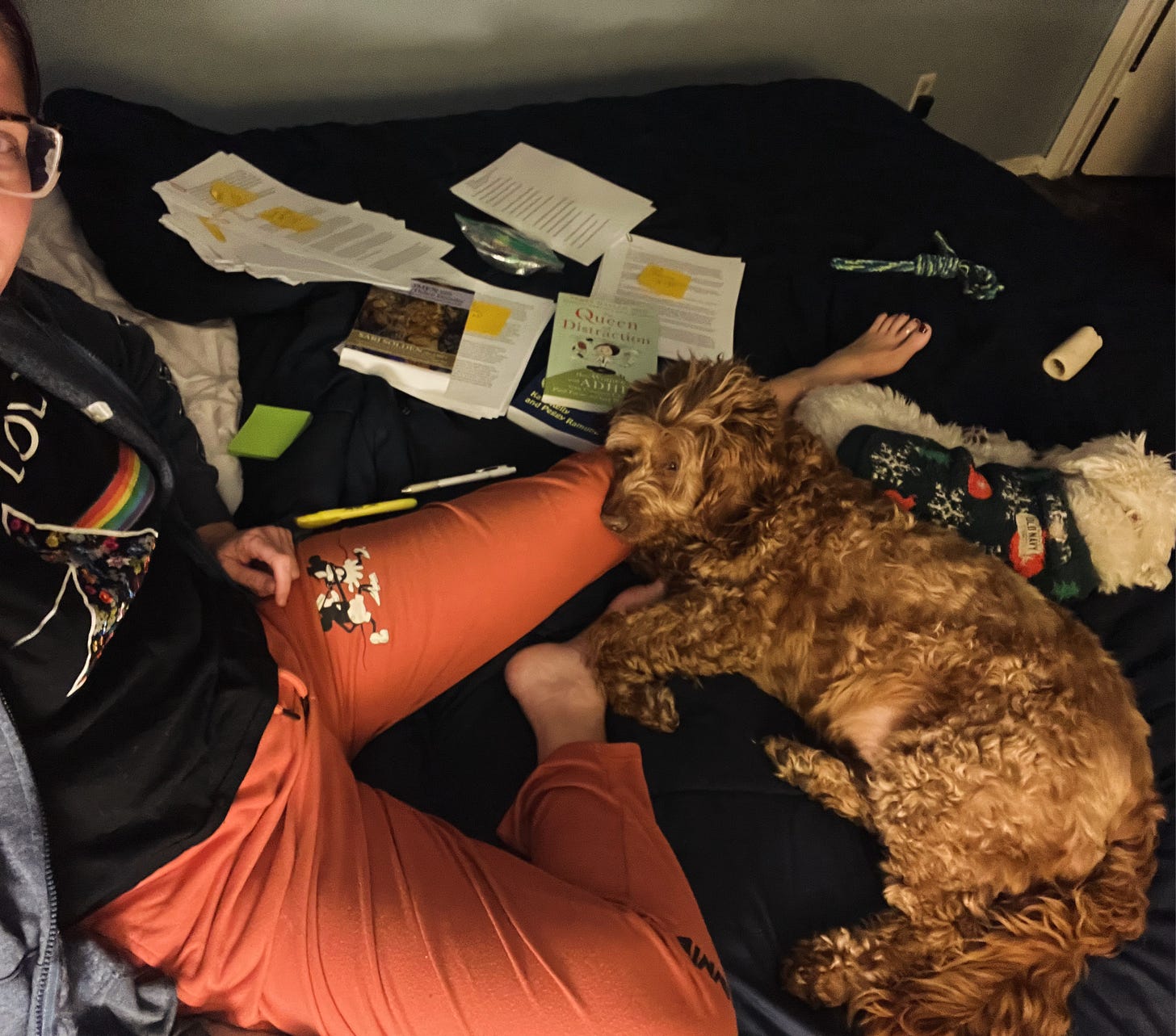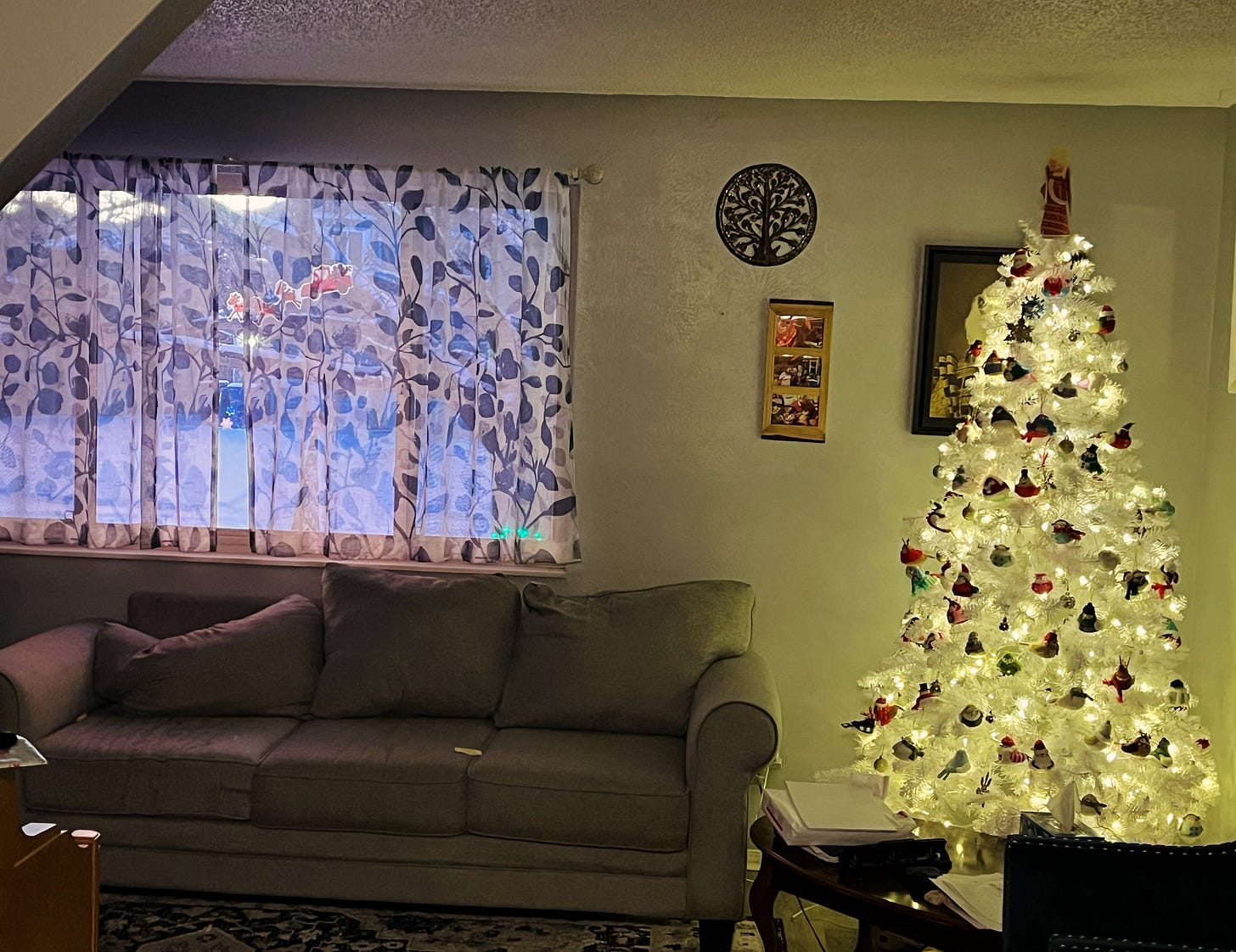I Have a Diagnosis!
The sweet relief of answers.
Last Monday was Evaluation Day, and I absolutely went into full-on Anna from Frozen mode: “It’s Coronation Day! The window is open; so’s that door. . .” It was a big deal, and it felt like a long time coming.
As of today, it’s been one week since I had my appointment with a psychiatric nurse practitioner and was diagnosed with ADHD. And I felt not one flicker of shame: only relief and gratitude. I had said several times prior to my appointment that I wasn’t as much seeking medication as I was validation. I think when you are a person who has spent your life with the lingering suspicion that there was something “not quite right” about you, there is nothing you want more than answers: “Why am I like this?” And even better if the answer isn’t: Because you are lazy, selfish, irresponsible, defective. . . in general, because you are BAD.
I sought a diagnosis because of characteristics that were obvious: distractibility, forgetfulness, difficulty focusing, frequent daydreaming, etc, but I learned that ADHD is about so much more than that. I had no idea that so many qualities of people who have ADHD result from an actual dopamine deficiency. Not a personality deficit, actual science: Neurotransmitters. The brain. Wiring. It has nothing to do with being incompetent or irresponsible: Our brains literally work differently. I think about this within the paradigm of parenting as well: How many of us have boiled over with frustration because we’ve told our kids A MILLION TIMES to: do their homework/brush their teeth/pick up their food trash/clean their rooms, only to wonder if they truly are the most disrespectful kids on the planet? Are they bad listeners? Lazy? Unmotivated? But what if their brains are just wired differently?
One of the most incredible things I learned while listening to Tracy Otsuka on the Goal Diggers podcast was that “ADHD brains are wired for interest, whereas neurotypical brains are wired for importance.” Let that sink in. If you are a person with ADHD, and you are not interested in something, it is going to be extremely difficult for you to begin and/or follow-through with an undesirable task. Whereas a typical brain may identify a job that needs to be done and simply do it, an ADHD brain may avoid the task, procrastinate, or simply not even identify it as being on your radar.
I listed a number of traits—both positive and negative—of people with ADHD in my last post. But in the past few weeks, through this new lens, there are so many other things I’ve come to notice about myself that are likely directly related to having ADHD:
Emotional regulation—a short fuse upon having reached your boiling point
My tendency to get irritated and frustrated with incoming texts and emails when I’m not able to immediately respond.
My preoccupation with “inbox zero” (not a true empty inbox, but rather, no unread messages) and how it relates to my anxiety level.
My impulse to check messages at stop lights in order to “stay on top” of things.
My challenges with motherhood in terms of the belief that I am inadequate, lacking, “not cut out for this,” as evidenced by forgetting pajama day, failing to remind kids to empty lunch boxes and complete homework, forgetting early release days, missing the deadline for school fees and activity registration, the list goes on. . .
Ignoring or missing the piles of clutter because I’m not interested or feel overwhelmed and helpless.
The fact that I could lose HOURS of my life writing or editing, because I love those activities.
I could go on and on, so I’m going to send you to our latest Mother Plus Podcast episode where I share the two moments that led me to my “IT IS TIME FOR AN EVALUATION” decision. Spoiler alert: they aren’t pretty, and one involves spoiled milk. 🤯😭🤢
I’ve been on a low dose of Ritalin since last week, and so far it’s going really well. I’m happy to talk about it with anyone who has questions, and I’ll continue to share updates as I navigate this process. In the past week, I’ve had at least half a dozen conversations with other women who have also suspected they have ADHD. I absolutely love talking about this; I think it is so very important for us to be open and honest and support each other.
As a society, we’ve made a lot of progress (to be clear, “we”= “non-assholes”) with understanding and accepting neuro-divergence, mental health conditions, the spectrum of gender identity and sexuality, and in general, myriad “differences” as it pertains to our children and their evolution. So why is it so hard for adults—more precisely, women/mothers at midlife—to extend ourselves grace when we learn more about our own systems? Why are we less curious, generous, and accepting of ourselves when it comes to deviations from “the norm,” especially when we ferociously advocate for our children? We may not have had this knowledge or these tools in the 1980s and 90s, but we have them now. Let’s use them.
In other news, I had a major achievement this week, which feels equally monumental in light of my ADHD diagnosis: I finished the first draft of my book. It was an utterly gorgeous moment in my life. I typed what I believe to be the actual last words, looked up, and saw the most stunning late afternoon light pouring through the curtains. A tremendous sense of peace came over me, and I realized that, no matter what happens next, writing this book has changed my life.
What’s next? Well, I’ll do some structural organization and revision, send the first draft to beta readers, and then it’s time for the scary part: sending out query letters and seeking representation. So, if you have an agent that you think would be a good match for me, I would love an intro! 😉
**Details that may only be of interest to writing friends**
I moved from a shitload of sticky notes, paperclips, and foam boards to finally giving Scrivener a try: I think I might be in love. I’ve spent the past 9 months (also the gestation of a book, who knew?) moving from the idea stage to brainstorming, writing, organizing, researching, studying (I have a handful of highly recommended books, courses, and workshops I’m happy to share!), and revising to get to where I am right now, on the cusp of proposal writing. I’m excited to share that I’ll be leading a group in HerCircle called “It’s Time for Your Book,” where other writers either actively writing books or just thinking about it can connect. We’ll share our online course materials, resources, and strategies while cheering each other on and answering questions about the process. You can join us here! We write so much better when we write in community.


Are you a Substack writer or reader who’s considering starting your own column? Join us for a four-week course, “Build and Grow a Substack You Love” here. If finances are a barrier, you can use the “pay what you can” option, no questions asked. This is perfect for the established Substack writer who wants to grow or monetize, and also for the Substack-curious. 😉
This past week has felt monumental and transformational. And now for some integration (exhale). If I can be a resource or support with either ADHD diagnosis or writing a memoir, please don’t hesitate to comment or reach out. And in case you’re like me and you already forgot about the podcast episode? Here it is again.
XOXO,
Steph





Love your vulnerability and am in the same boat right now! Whew. Let me know when you can get together to talk ADHD & motherhood. I’d love to be one of your beta readers too!!
I’m so happy that you were able to receive the information that you were looking for and that it didn’t turn into continuing the wild goose chase. If this is helpful for the inbox anxiety at all, a SysAdmin once told me, “there’s no such thing as an urgent email; it’s a passive form of communication.” I tried arguing with him until he stopped me finally and said, “you have no control over what happens on the other side. You can communicate the urgency of a response, but you’re still at the mercy of the recipient seeing it when you need them to see it and formulating a response. If it’s that urgent, pick up the phone and call.” 🤯 I no longer worry about not getting back to emails (or texts) immediately and give myself permission to respond hen I have space to provide an intentional and meaningful response. Love you. 😘